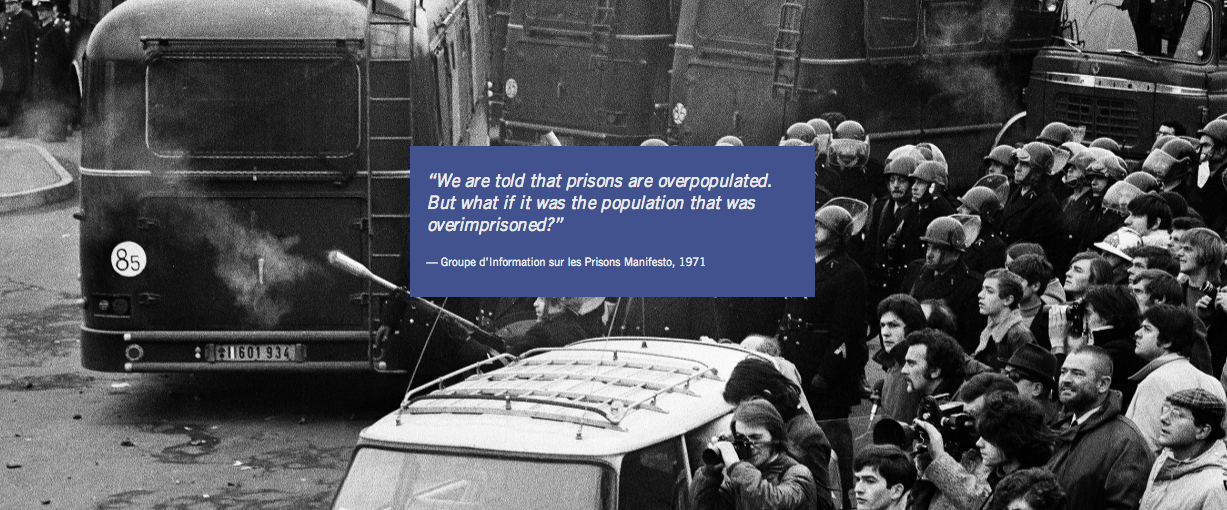INTRODUCTION
The following work is by students at Parsons Paris and is part of the States of Incarceration’s exhibit in Paris, France: “Michel Foucault and the Groupe D’information sur les Prisons“. The collection of artifacts and imagery is a study on the person who began a global debate about prisons, Michel Foucault. The students spent the semester reading Foucault and carrying out research in archives. While reading Foucault’s manuscripts and prisoners’ responses to the GIP questionnaire, they witnessed how little had changed, particularly in the context of the Nov. 13th, 2015, terrorist attacks in Paris, the subsequent state of emergency, curtailment of public rights, and renewed evidence that prisons foster violence. Learn more about the exhibit here.
MICHEL FOUCAULT AND THE GROUPE D’INFORMATION SUR LES PRISONS
1971 GIP QUESTIONNAIRE The 1971 GIP questionnaire sought to make prisoners’ perspectives of themselves heard for the first time.
THE PROTESTING PRISONERS ARE CALLING US! The protesting prisoners are calling us! cover of La Cause du Peuple, n°16, Jan. 19, 1972. The GIP coverage of prison revolts aimed at countering government propaganda, which denigrated them as the action of a small fraction of politicized agitators. Courtesy of: GIP Archives / IMEC, Caen
THE GIP FOSTERED LOCAL ACTION The GIP was a decentralised organisation, operating at the local level. The GIP fostered local action and autonomous groups outside Paris, including in Toulouse. It insisted on bringing prisoners’ voices to new audiences, and on opening debates on prisons internationally. Courtesy of: GIP Archives / IMEC, Caen
GIP, LA CAUSE DU PEUPLE, JUNE 7TH, 1971 “You are already here. At the prison. Fleury-Merogis Prison. The model prison: alone 23/24”. 1970s French mega-prisons were built next to new housing projects, as part of an urban development plan that relegated poor and immigrant people to “banlieues”. The prisons soon filled with local people. Courtesy of: GIP Archives / IMEC, Caen
FOUCAULT, LA SITUATION DANS LES PRISONS… “We want to expose this scandal for all to see”. Beyond using his notoriety to publicize the GIP, Foucault participated in the group’s daily tasks, including distributing questionnaires to prisoners. Courtesy of: Michel Foucault Archives / IMEC, Caen






